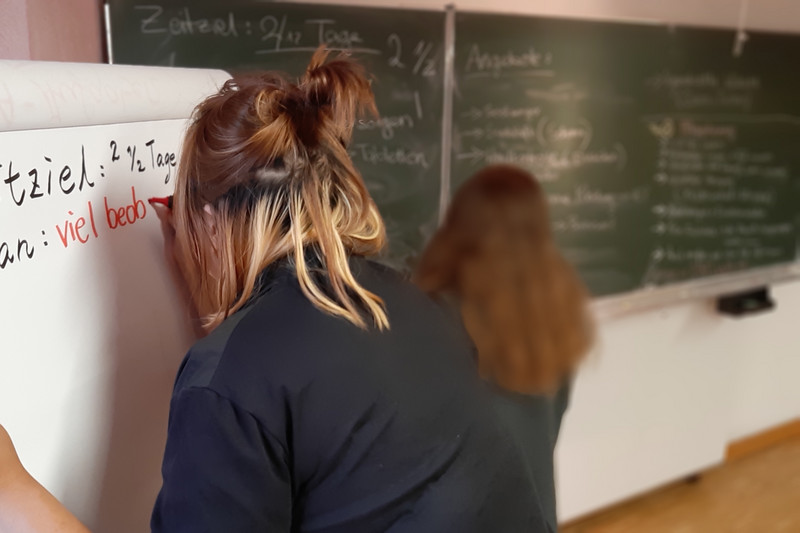Increasing the Understanding of Cases in Professional Nursing Care: “ForBild” Training Supervision in Herdecke

In 2020, with the advent of the German Occupation Act, the admission requirements to practice in professional nursing care were substantially raised. For the first time ever, healthcare specialists in nursing care are responsible for so-called tasks reserved for individual non-physician health care professions. That includes, for instance, conducting surveys on care requirements, and making individual arrangements for supporting measures. On the other hand, the framework conditions for the care profession are continually being tightened. Being constantly pressed for time and increased cost pressure weigh heavily on the day-to-day work, while pay checks are sometimes quite small, and skilled workers have already been lacking for a number of years. In the field of anthroposophic care, too, qualified staff are hard to find. This is where additional, sometimes complementary, practices come into play, such as rhythmic massages, compresses and packs. One of the training locations for such techniques is the Dörte Krause Institute (DöKI) at Herdecke Collaborative Hospital. In Fall 2020, the “ForBild” course was launched there, which supports trainees for 18 months, in particular in the field of case-based learning.
The care professions these days work in exceedingly diverse and complex fields of treatment – whether in the hospital or in the care home, in the field of out-patient care or in supporting people requiring assistance. Besides the daily routine, regularly situations occur where quick decisions and actions are necessary, beyond the scope of standard work. This is why carers not only need a high degree of specialist and methodical competence, but are also called upon, as personalities, to exercise their social skills and professional intuition. As such, depending upon the setting, they collaborate as part of a team of different professional groups, and they really need to be able to think on their feet, so as to see the various perspectives.
That gives rise to new challenges posed of nursing care training, for which prospective specialist staff should comprehensively prepare themselves. Case-based learning is the key to succeeding in this respect, in order to strengthen carers’ skills working “at the bedside”, through theoretical tuition, as well as practical training. “They need both theoretical and intuitive understanding of cases, in order to be able to take their decisions with confidence, in line with the situation”, comments Cornelius Sträßer, responsible for the project at SAGST. “While case-oriented learning has for a long time proven its worth in theoretical education, it is frequently short-changed in the practical phases.” However, many trainees rely, precisely, on such aids, in order to be able to become acquainted with the requirements posed – which is something that most training institutes can scarcely achieve due to a shortage of resources. In the context of “ForBild”, the trainee carers practice changing perspectives, to be able to see the point of view of the recipient of the care during a personal encounter, and learn to combine this knowledge about the patient's personal experience of disorders with the necessary theoretical knowledge. In this way, they enable patient-oriented care at a high professional level in the first place.
